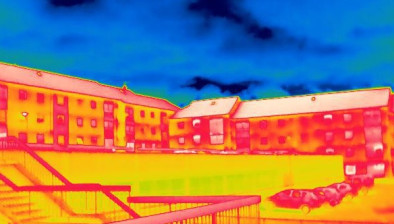New rules for all new buildings to have zero direct emissions heating systems

Minister for zero carbon buildings Patrick Harvie
The Scottish Government has published new rules which mean that all new buildings in Scotland are fitted with climate-friendly heating systems.
Scotland’s Heat in Buildings Strategy sets out the Scottish Government’s intention to develop regulations to ensure that new buildings, applying for a building warrant from 2024 onwards, use zero direct emissions heating (ZDEH) systems.
A “direct emission heating system” means a system (other than a heat network) by which the building is heated or is cooled, or by which hot water is made available in the building, which uses thermal energy produced by a source of production which during normal operation produces more than a negligible amount of direct greenhouse gas emissions at the point of use.
The Scottish Government consulted on these proposals in 2021 and again in 2022.
If passed, the new regulations before Parliament will go live in April 2024.
Minister for zero carbon buildings Patrick Harvie said: “Along with transport, heating Scotland’s homes and buildings is one of the biggest contributors to our carbon emissions and we know we have to take bold action to meet our climate obligations.
“These regulations will mean that direct emissions heating systems - like gas boilers - will no longer be installed in new homes and non-domestic buildings. Instead, they will be replaced by climate-friendly alternatives like heat pumps and heat networks.
“This change is essential to deliver our commitment to make buildings zero carbon by 2045. It will also mean that people who buy new homes will know that their home is future-proofed against the need to have to switch heating systems in the future.
“It is another example of Scotland leading the way in addressing the big challenges that we need to solve to meet our net zero targets and making sure we have buildings that meet the needs of the 21st century.”
Commenting on the proposals, Fabrice Leveque, climate policy manager at WWF Scotland, said: “This is an important and sensible change to how we heat new builds going forward. By ensuring these homes have low emission heating systems from day one, it reduces the impact on the climate, but also protects future owners from volatile fossil fuel prices.
“Most climate emissions come from the homes we already live in, and so we look forward to hearing how the Scottish Government plans to phase out these fossil fuel boilers.”
Builders have warned that the cost of new housing will increase, the electricity grid lacks capacity and there will be issues with the supply chain, all leading to a drop in the completion rate.
Responding to the consultation, Persimmon Homes said: “The unintended consequences will be many and varied. Many fewer houses will be built. The housing crisis we are in will worsen. The construction industry is recognised as being a major driver in a strong economy. To significantly reduce the output of the housebuilding industry will result in a corresponding damage to the wider economy.”
Cala Homes believe that there is “every chance that development will slow down until such times as the electrical network and supply chain is in a position to facilitate national decarbonisation”.
The electricity network in Scotland was not “sufficiently developed to provide the required capacity” to allow the thousands of homes to be built said Taylor Wimpey.
A Scottish Government spokesperson said: “Heating Scotland’s homes and buildings is one of the biggest contributors to our carbon emissions and we know we have to take bold action to meet the legal climate targets, which all parties in Parliament voted for.
“The sale price of a new building is determined by individual developers and takes into account a range of factors related to building construction costs and local housing markets. Retrofitting a home is more expensive than installing a heat pump from the outset – so people buying a new home will be buying one that is future-proofed against higher costs down the line.
“We initially announced our intention to regulate new build heating systems in September 2019 - almost five years in advance of the regulations coming into force. That has given the construction sector significant time in which to plan for these new regulations, and we have laid these nine months before they come into force to ensure industry have sight of the detail in advance to aid planning.”





















